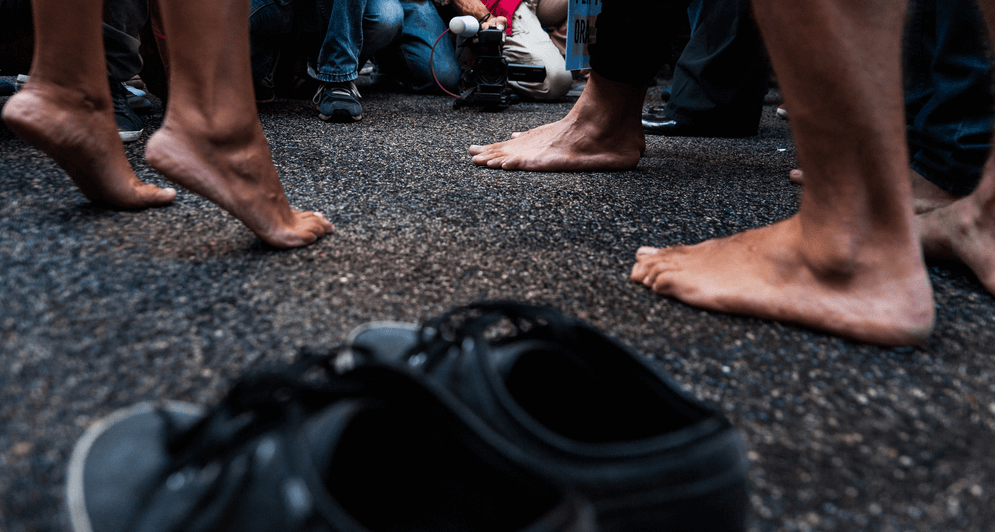Throughout my startup journey, I’ve consistently heard experts praise the value of bootstrapping a startup. The startup landscape is saturated with countless inspirational quotes and headlines, such as “6 Quotes on business & personal finance from a bootstrapped-to-$100M-valuation founder,” from the now-rightfully-defunct Silicon Valley Bank’s “Wealth Insights” section.
This fantasy is perpetuated so frequently that many founders assume it’s the de facto startup approach.
The term “bootstrapping” originates from the old American expression of “pulling yourself up by your bootstraps,” which encourages individuals to rely on their resources, perseverance, personal sacrifice, and determination to rise from poverty to prosperity. However, in reality, this notion is absurd, unreasonable, and fosters disdain for those who lack resources.
In the business world, “bootstrapping” refers to an entrepreneur establishing a company with minimal capital, primarily relying on personal finances or the new company’s revenue. In the U.S., many wealthy “self-made” individuals adopt this origin story, often neglecting to mention the significant advantages they enjoyed, such as wealthy parents, government subsidies, connections, societal privileges, and access to quality education.
For instance, Elon Musk, once the world’s wealthiest man, frequently recounts his humble beginnings, working and sleeping in an office. However, he rarely mentions his privileged upbringing, successful parents, or his family’s ownership of an emerald mine in apartheid-era South Africa. Musk’s companies, Tesla and SpaceX, have also greatly benefited from government assistance, receiving over $7 billion in contracts and billions more in tax breaks, loans, and subsidies.
This bootstrapping myth is not limited to entrepreneurs in the U.S. Politicians, celebrities, and others in the public eye have crafted their own “rags-to-riches” stories, effectively taking all credit for their accomplishments and ignoring their family, community, privileges, and resources.
It would certainly be odd for an entrepreneur to admit the truth and state that: “My success stemmed from a million-dollar investment from my father and my families’ connections to influential people who invested, introduced me to other influential people, and bought my products.” Instead, the prevailing narrative is: “I started with nothing, and now I am successful.”
The bootstrapping narrative, which is promoted by one of the most racially inequitable industries in the world, Venture Capital (where Black entrepreneurs receive less than 2% of all VC dollars each year), is at odds with Martin Luther King Jr’s observation that “It’s all right to tell a man to lift himself by his own bootstraps, but it is cruel to say to a bootless man that he ought to lift himself by his own bootstraps.”
Much like some of us might hesitate to upgrade our McDonald’s meal to a Large while others are concerned about the artisan brioche bun on their Wagyu beef burger, the concept of not being aware of privilege extends well beyond wealth to race and gender.
The American mythology of “rising up from nothing,” defying all odds and becoming successful, is deeply ingrained in the fabric of the nation, alongside apple pie, guns, and overpriced healthcare.
As an immigrant founder, most likely you aren’t wealthy, connected, or white, thereby making you a personification of the flaws in the bootstrapping myth of the U.S. startup world. This myth of “hard work leads to success” is one of the most dangerous American myths and a major factor in funding disparities in the U.S.
Many of us know people who work tirelessly from 5 a.m. to 11 p.m., cooking, cleaning, building and otherwise providing the foundation for our comfortable lives. They work hard but aren’t as nearly as successful as Elon Musk, who spends his days boasting about his humility on Twitter.
For immigrant founders who are surprised to learn that every successful individual they meet has risen from near-poverty through hard work, keep in mind that this narrative is a fantasy, internalized and believed by many, but a fantasy nonetheless.
It’s a harmful fantasy that tears at the fabric of innovation in the U.S. However, if you want to better understand the American mindset, you can pretend that everything you accomplished in your life is entirely your own doing. And if you want to have productive conversations with venture capitalist-types, you can tell them as much.
But always remember this: when people advocate for bootstrapping as the universal starting point, they’re effectively saying that rich, privileged individuals deserve to be successful, while those who lack resources or connections do not.
About the author
Michael Burtov is a serial venture-backed entrepreneur who has grown multiple startups from initial ideas to millions in revenue and venture funding. He has appeared on Shark Tank and his work has been covered in hundreds of major media outlets. He is also the subject of mini-documentaries by Discovery Channel and CNN’s “Great Big Story.” Additionally, Michael has worked with hundreds of high-growth startups to scale and fundraise, directly and through his involvement with leading innovation organizations including Harvard Business School, Harvard Innovation Labs, and the MIT Enterprise Forum. He is also the author of “The Evergreen Startup,” a popular book on early-stage startup fundraising. He holds multiple patents and has received several awards for his work, including the Edison Universe Edison Award, the TIME Magazine Best Inventions Award, The Business Journals Top Inventor Award, Brandeis University Alumni Entrepreneur Award, and the TechCrunch Disrupt Wildcard Award.








